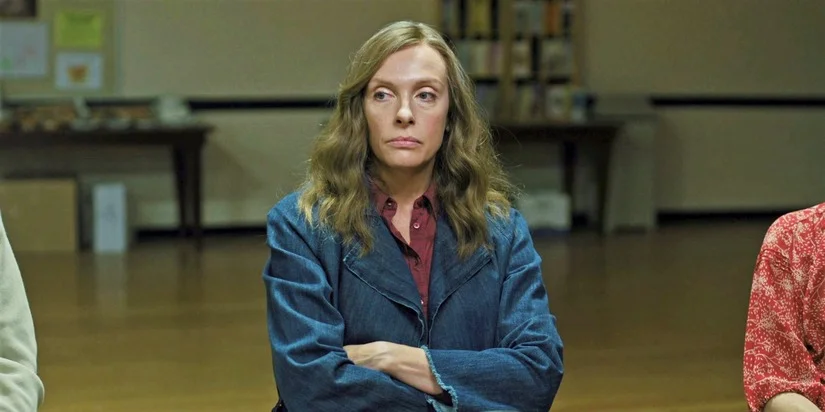When it comes to cinema, much of the spotlight often shines on blockbuster leads, award-season favorites, or the performances that dominate pop culture conversation.
But beneath the surface of Hollywood buzz and mainstream accolades lies a wealth of understated, overlooked, or quietly brilliant performances that deserve far more attention than they received.
These are the portrayals that may not have won Oscars or gone viral but contributed immeasurably to the films they inhabited.
1. Gugu Mbatha-Raw in Beyond the Lights (2014)
Gugu Mbatha-Raw’s performance as Noni, a pop star on the verge of emotional collapse, is as heartfelt as it is haunting. With a role that blends vulnerability, strength, and complexity, she brings authenticity to a character caught between fame and identity. The film explores mental health and self-expression in the entertainment industry, and Mbatha-Raw navigates this terrain with remarkable sensitivity. Despite critical praise, her work was largely overlooked during awards season.
2. Ben Foster in Hell or High Water (2016)
In a film anchored by excellent performances, Ben Foster’s portrayal of Tanner Howard, a volatile ex-con, deserves special recognition. He balances reckless energy with moments of loyalty and pain, humanizing a character that could have easily been one-dimensional. Foster immerses himself in the role so thoroughly that you forget you’re watching an actor at all. His intensity elevates the film’s emotional stakes and provides a gritty counterpoint to Chris Pine’s more restrained performance.
3. Carla Gugino in Gerald’s Game (2017)
Based on Stephen King’s novel, Gerald’s Game is a psychological horror story that depends almost entirely on Carla Gugino’s solo performance. Playing a woman handcuffed to a bed after her husband dies unexpectedly, Gugino conveys terror, resilience, and introspection with extraordinary control. Her ability to sustain tension and carry the film almost single-handedly is a feat that never got the widespread acclaim it warranted, despite being a career-defining role.
4. John Carroll Lynch in Lucky (2017)
Character actor John Carroll Lynch takes center stage in Lucky, portraying a 90-year-old atheist confronting mortality in a small desert town. His performance is a masterclass in restraint and subtlety. With minimal dialogue and expression, he captures a lifetime of experience, regret, and quiet dignity. The film moves at a gentle pace, and Lynch’s presence gives it soul. It’s a quietly profound performance that resonates long after the credits roll.
5. Toni Collette in Hereditary (2018)
While horror films are often overlooked in awards conversations, Toni Collette’s staggering performance in Hereditary deserved more than cult praise. Her portrayal of a grieving mother unraveling under the weight of trauma is emotionally raw, terrifying, and deeply layered. She navigates between maternal instinct, psychological collapse, and existential terror with incredible range. It’s one of the most compelling performances in modern horror—and one that should have been recognized with major accolades.
6. Michael Stuhlbarg in Call Me by Your Name (2017)
In a film already full of outstanding performances, Michael Stuhlbarg’s portrayal of Mr. Perlman, the father of the protagonist, is a standout moment of emotional wisdom. His late-film monologue—offering empathy, acceptance, and guidance—is delivered with such warmth and depth that it became one of the film’s most memorable scenes. It’s a quiet but powerful performance that grounded the story in emotional truth, yet it was largely overshadowed by other cast members.
7. Zoe Kazan in The Big Sick (2017)
Though Kumail Nanjiani received much of the attention for co-writing and starring in this romantic dramedy, Zoe Kazan’s portrayal of Emily—based on the real-life wife of the co-writer—is just as crucial. Kazan brings charm, vulnerability, and intelligence to a character who spends much of the film in a coma, yet still feels central to the story. Her performance before and after the illness anchors the film emotionally and brings balance to its humor and heartache.
8. Sam Rockwell in Moon (2009)
In Moon, Sam Rockwell essentially plays multiple versions of himself as a solitary worker on a lunar base slowly uncovering disturbing truths. It’s a role that requires emotional nuance, psychological depth, and physical stamina, and Rockwell delivers across the board. His performance captures existential loneliness and inner conflict with remarkable subtlety. While Rockwell would go on to win an Oscar years later, his performance in Moon remains one of his most remarkable and underrated turns.
9. Nia Long in The Best Man Holiday (2013)
In a genre often dismissed as formulaic, Nia Long’s performance as Jordan in The Best Man Holiday stands out for its sincerity and emotional maturity. She portrays a successful woman dealing with the complexities of love, friendship, and grief. Long avoids melodrama, opting instead for grounded emotional realism. Her role brings depth to an ensemble cast and deserves more credit for showing the multifaceted experiences of Black women in contemporary cinema.
10. Lakeith Stanfield in Short Term 12 (2013)
Before his breakout roles in Atlanta and Get Out, Lakeith Stanfield delivered a soul-stirring performance in Short Term 12. Playing Marcus, a troubled teen in a group home, Stanfield brings raw honesty and heartbreak to the screen. One scene, in which he performs a rap detailing his pain, is both gripping and emotionally devastating. It’s a performance that hinted at his future potential and remains one of the most authentic portrayals of youth trauma in recent film.
Why These Performances Matter
Underrated performances often reveal a deeper layer of storytelling—they’re the glue that binds the plot, the emotion that drives a scene, or the realism that pulls viewers in. Many of the actors above weren’t ignored due to lack of talent, but because the spotlight was elsewhere. Whether due to genre bias, distribution limits, or being overshadowed by more famous co-stars, these performances didn’t get the recognition they deserved at the time of release.
Yet, in many ways, their impact is lasting. They’ve become cult favorites, quiet inspirations for aspiring actors, or reappraised gems in critics’ retrospectives. These portrayals demonstrate that greatness in acting isn’t always loud or obvious—it’s often found in quiet moments, unflashy characters, and emotional honesty.
